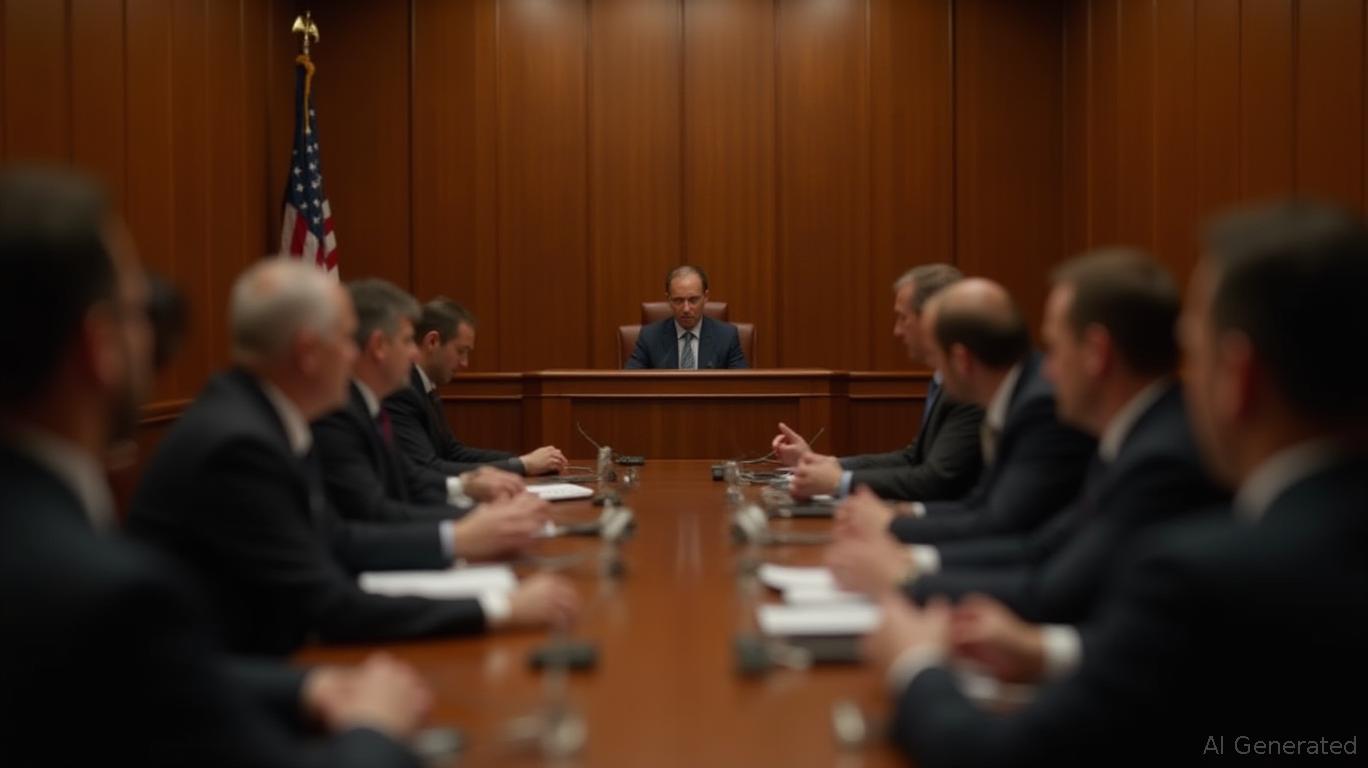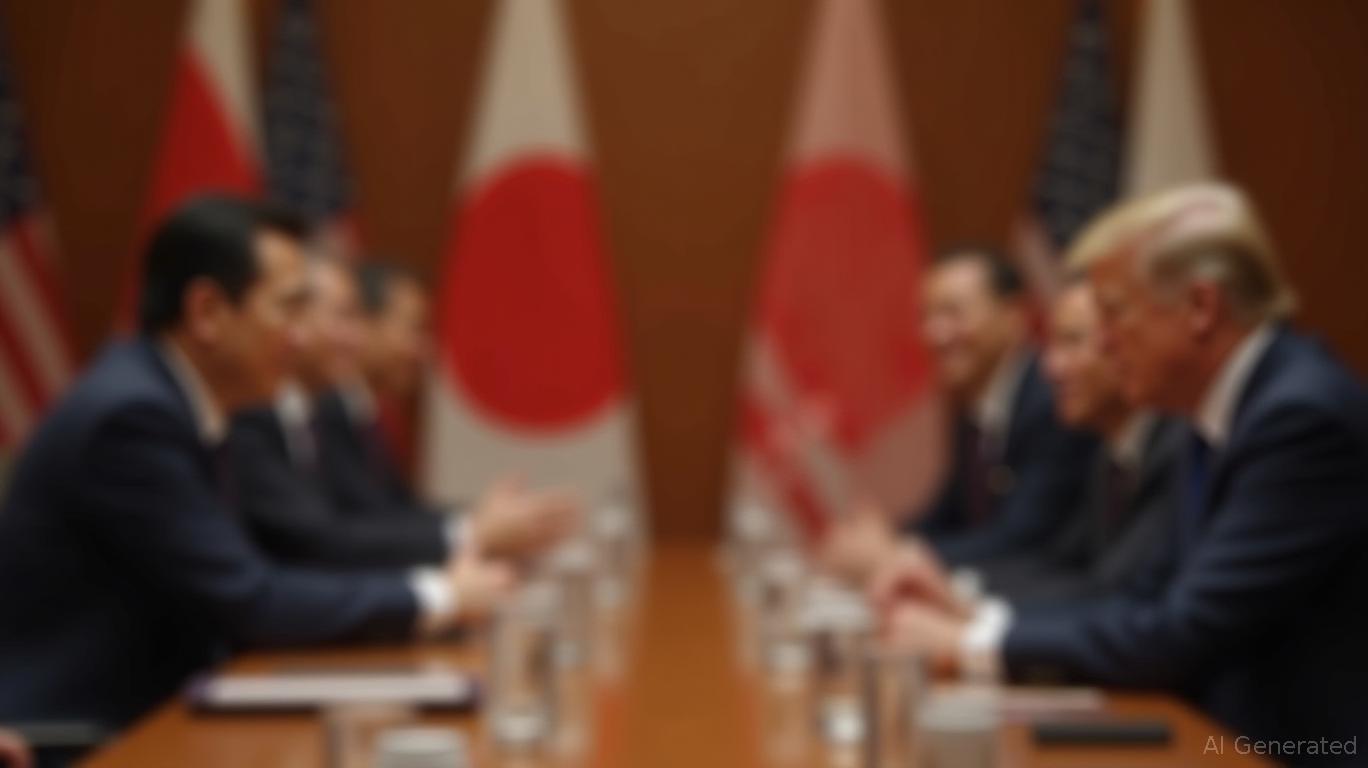Federal Authority Versus State Regulations in Kalshi's Legal Case in New York
- KalshiEX sues New York to block state enforcement of its sports-event contracts, claiming federal commodity futures laws preempt state jurisdiction. - The case follows mixed legal outcomes in Nevada, New Jersey, and Maryland, where courts have both granted and denied preliminary injunctions favoring Kalshi. - Legal experts highlight Kalshi's strategy to frame disputes in federal preemption rather than gambling legality, avoiding state-specific regulatory debates. - A favorable ruling could enable nationw
KalshiEX LLC has intensified its dispute with state authorities by initiating a federal lawsuit in New York, aiming to prevent the state from applying its gambling regulations to the platform’s sports-related prediction contracts. Filed in the U.S. District Court for the Southern District of New York, the suit contends that federal law supersedes state authority over Kalshi’s products, which the company describes as commodity futures contracts regulated at the federal level, according to
The New York State Gaming Commission issued its cease-and-desist letter on October 24, alleging that Kalshi was running an unauthorized sports betting service, according to

Kalshi’s legal tactics have met with varied outcomes. Courts in Nevada and New Jersey granted preliminary injunctions in Kalshi’s favor, finding that CFTC oversight likely overrides state law. However, a Maryland judge recently refused a similar request, stating it was “highly unlikely” that Congress meant to displace state gambling rules, according to
Legal analysts believe Kalshi’s proactive lawsuits are a strategic choice. Daniel Wallach, an attorney specializing in sports betting, explained that most states require prior notification before suing businesses for repeated infractions, which allows Kalshi to present its arguments in federal court first. By centering its case on federal preemption rather than debating whether its products are gambling, Kalshi sidesteps more controversial issues. Nevertheless, states including Arizona, Illinois, and Massachusetts have also issued warnings or filed lawsuits, indicating a broader regulatory pushback, as
The results of these legal battles could reshape how prediction markets are regulated. If Kalshi prevails, it could operate across the country under federal supervision, possibly paving the way for other regulated competitors. If the states win, prediction markets would have to comply with a patchwork of state rules, offering contracts only where sports betting is allowed. The dispute could ultimately be decided by the Supreme Court, as lower courts continue to wrestle with the balance between federal and state control over financial derivatives.
While defending its business model, Kalshi faces practical obstacles. Blocking users in states like New York—where monthly sports betting volume reaches $2.29 billion—could be financially damaging. At the same time, prediction markets are gaining mainstream attention, with New York mayoral candidate Zohran Mamdani referencing Kalshi’s odds during a campaign event. The ongoing case highlights both the increasing prominence of prediction markets and the unresolved questions about their regulatory future.
Disclaimer: The content of this article solely reflects the author's opinion and does not represent the platform in any capacity. This article is not intended to serve as a reference for making investment decisions.
You may also like
Japan’s F-150 Move: Strategic Messaging Outweighs Practical Benefits in Trade Negotiations
- Japan displayed Ford F-150 trucks to Trump as symbolic gesture to ease trade tensions and align with U.S. preferences. - $550B investment package includes F-150 imports, praised by Trump but questioned for practicality in Japan's compact infrastructure. - Critics highlight logistical challenges and mismatched consumer preferences, contrasting symbolic value with real-world adoption limits. - Deal aims to strengthen U.S.-Japan ties ahead of Trump-Xi talks, balancing trade concessions with geopolitical lev

Secure Airdrop Unveils Monad’s Community-Led Ecosystem Ambitions
- Monad's airdrop reveals token allocations to eligible participants, aiming to decentralize ownership and reward community engagement. - Eligibility criteria include early platform interaction, governance participation, and transparent verification to ensure fair distribution. - Advanced bot-filtering and KYC protocols safeguard against fraud, emphasizing security as "non-negotiable" for ecosystem trust. - Participants must claim tokens via official channels amid warnings against phishing, aligning with b

Nexchain AI’s Testnet 2.0 Addresses Scalability and Security Challenges to Speed Up Blockchain Integration
- Nexchain AI's Testnet 2.0 offers 100% token bonuses to accelerate mainnet adoption through incentives and enhanced security tools. - The $11M presale (Stage 28) has met 90% of its target, with AI-driven scam detection and MEV prevention features highlighted in the testnet phase. - A hybrid PoS+DAG architecture and real-time testing environment aim to improve scalability, supported by CERTIK security validation. - A $5M airdrop campaign and upcoming November mainnet launch position Nexchain to expand cros

DeProp's $DXBRE Token: Connecting DeFi with Dubai Property Returns
- DeProp launches third $DXBRE token presale stage, enabling $50 investments in Dubai's premium properties via blockchain-based fractional ownership. - Platform combines DeFi incentives with real estate appreciation, distributing 50% rental income to token holders and reinvesting the remaining 50% for portfolio expansion. - $DXBRE targets 6X return potential at $0.064 launch price, leveraging Dubai's 10-15% rental yields while integrating with Aave/Compound for dual-income streams. - 40% token allocation f
